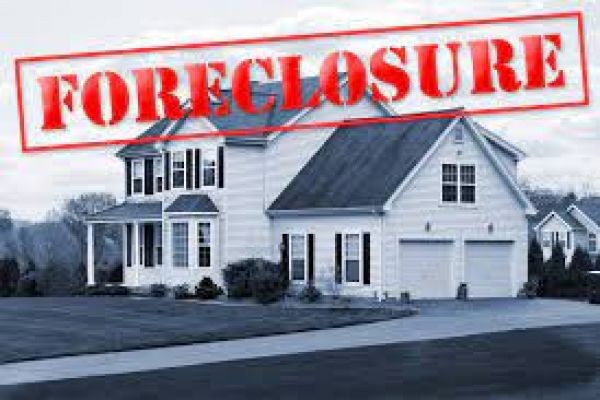In the business of buying or selling real estate the majority of people involved in this area of business finances have at one time or another heard of the term real estate foreclosure. This term or word seems to put fear in most people because they do not understand the word and either or the process of real estate foreclosure.
I will try my best to explain the layman's term of what real estate foreclosure means. I will also provide you with the legal term for real estate foreclosure and explain the process of how a real estate foreclosure is processed by your lender.
First let's explain what a layperson understands of what a real estate foreclosure probably means. Most people believe real estate foreclosure is the process of not making payments on your real estate mortgage or loan. Then the lender has a couple of months of non-payment to take your property from you and you have to move out of the property.
I believe most people would agree with what I have stated above as to what a real estate foreclosure truly means to them. That's a very basic understanding of the real estate foreclosure process. Let’s define what a foreclosure truly is, so we have a better understanding of the term or word foreclosure.
Real estate foreclosure is not a boogieman's word to scare anyone. Real estate foreclosure term used in the real estate arena means to foreclose or to deprive someone of a mortgage that was pledge as a security for a loan. You pledge the real estate that you were purchasing as security for a loan.
When you default or stop making payments on that real estate loan. A lender can foreclose on that security which is the real estate, and stop you from possessing the property or security for the loan. Basically the lender is saying give me back the keys to the security which is the real estate depriving you access to enter, because you have not been making payments on the loan.
Now the legal definition of what a real estate foreclosure is a little different, but it gets the point across as to what foreclosure means. Legal definition of real estate foreclosure is as follows;
"A process in chancery by which all further right existing in a mortgagor to redeem the estate is defeated and lost to him, and the estate becomes the absolute property of the mortgagee; being applicable when the mortgagor has forfeited his estate by non-payment of the money due on the mortgage at the time appointed, but still retains the equity of redemption. 2 Washb. Real Prop. 237.
Law Dictionary: What is FORECLOSURE? definition of FORECLOSURE (Black's Law Dictionary)". This is what black's law dictionary define what foreclosure means. Let's try and break that down to it common denominator about foreclosure. A process which chancery means a court of equity which also means a court where your case can be heard to settle litigations.
In that court your rights as the owner of the property are being removed, because you have failed to keep your part of the contract which is to make your monthly or quarterly or yearly payments which were not received at an appointed time and place. You have forfeited on your obligations and rights to the property.
Repossessions of Real Estate Property by the Lender in California:
California has two different ways that lenders can repose your property and they are Non-judicial Foreclosure and Judicial Foreclosure.
Non-judicial Foreclosure is the process where the lender does not have to wait to receive court order power to evict you from the property. They can evict you from the property using a trustee sale of the property.
- 1. Trustee sale usually take four months for the process to be completed.
- 2. Beneficiary of the property which is the lender - notifies you that you are behind in your obligations. Lender has the trustee to file a notice of default.
- 3. Trustee now has to wait 3 months after recording the notice of default.
- 4. Trustee then has to advertise a notice of sale for 3 weeks or (21) days and post a notice of Sale on the property.
- 5. Very important notice for the borrower to be aware of is that while their property is in default, they can bring those payments current and stop the foreclosure process in its track.
- 6. If you bring the payments current, then the lender has to start all over again to foreclose on your property.
Judicial Foreclosure is the process where the courts have to give the lender the authority to proceed with the process of foreclosure. There is one caveat when using a judicial foreclosure they are usually for properties that are in mortgage states such as;
- 1. Alabama
- 2. Arizona
- 3. Arkansas
- 4. Connecticut
- 5. Delaware
- 6. Florida
- 7. New York
There are many others states that are mortgages states. Do a little research on which state that you may or may not purchase real estate. The lender trying to foreclose on you in a mortgage state has to prove that you are in default of your obligations. If they can prove you are in default then they will contact an attorney to proceed with the process of foreclosing on the property in a court of law. Another caveat with judicial foreclosure the lender, before they hire this attorney they have to use every resource they have to try and get you to become current on your obligations. When they have done that then they can proceed to an attorney to file the case.
- 1. Attorney files paper work to start foreclosure process
- 2. Court issues a decree (official order by the court legal authority) foreclosure
- 3. Order the sale of the property
- 4. Property posted in some type of publication
- 5. Court appointed commissioner can sale the property to the highest bidder
- 6. After the sale of the property the borrower (keeps possession of the property)
- 7. Buyer gets one year after the sale to redeem the property
- 8. Buyer gets a chance to make good on their obligations and get their property back – mortgage states give buyers this chance.
- 9. After one and the buyer does not make good on all of the defaulted payments and court cost. The new buyer is issued the property through a sheriff’s deed.
This is the foreclosure process, but keep in mind that the lender does not have to wait until you are 3 payments behind. Lenders can start the foreclosure process when you are only one payment behind in your obligations.







